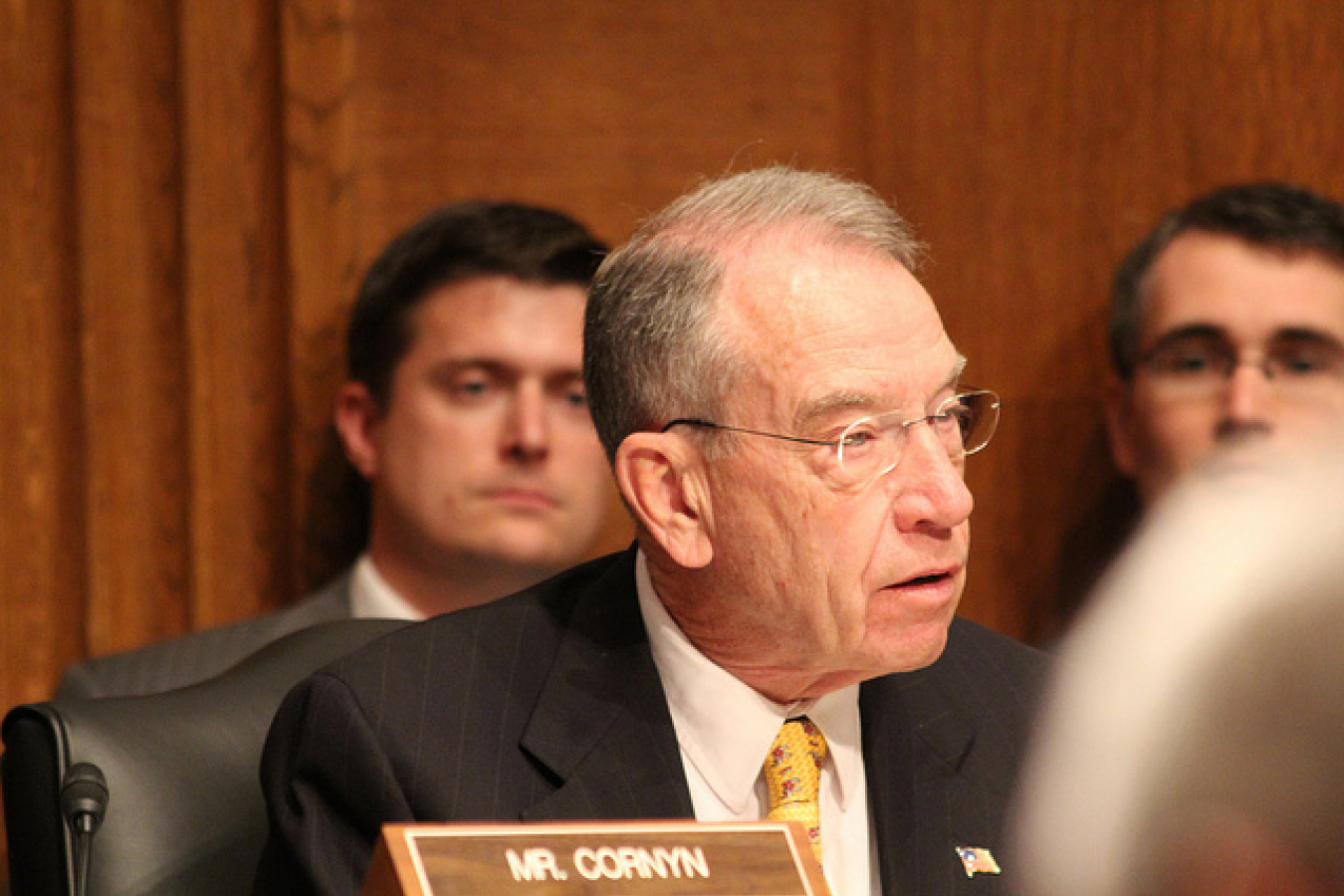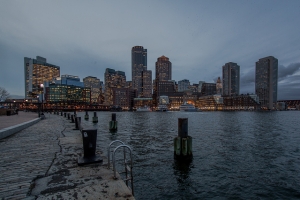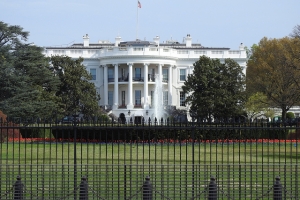Support migrant centric journalism today and donate

The issue of supposed sanctuary cities – which refers to cities that do not fully comply with federal US immigration laws – has become a focus of discussion in the US Congress after Donald Trump raised the subject while campaigning for the Republican nomination for the 2016 presidential race.
On Tuesday, July 21, Republican Chuck Grassley - Senator of Iowa and chair of the Senate Judiciary Committee – revealed new legislation that would target areas of the US "harbouring" undocumented immigrants.
Grassley has said that the proposed legislation if it comes into law would withhold federal funding for state and local entities that refuse to cooperate with the US government regarding the transfer or holding of illegal immigrants with a criminal record.
The funding that Grassley says could cease under the proposed new law in those areas of the Country that do not comply with US immigration law, includes grant funding connected to law enforcement provided by the Department of Homeland Security and the Department of Justice. Furthermore, the new legislation will see a compulsory minimum prison sentence of at least five years, along with a fine, for people re-entering the US following deportation.
Enforcing US immigration laws
Announcing the bill during a judiciary committee hearing, Grassley said: "Enforcing immigration laws in the US is not a voluntary or trivial matter. Lives are at stake. Things cannot continue as they are."
The hearing took place with several relatives present of family members, who had been killed by illegal immigrants in the US, giving testimony. Grassley said: "No more families should suffer the pain of losing a loved one killed at the hands of those breaking US laws just by being in the country. Families should not have to go through what these witnesses have."
Grassley criticised the Obama administration, saying that problems caused by undocumented immigrants are a direct result of his administration's failure to deport criminals and tackle sanctuary policies.
Immigration Sanctuary cities rise to prominence
The recent murder of 32-year-old Kate Steinle from San Francisco has thrust the issue of sanctuary cities into the spotlight. The individual suspected of shooting Kate Steinle, Juan Francisco López Sánchez, was known to have been convicted of seven previous felonies and was deported back to his native Mexico on five separate occasions.
Real estate tycoon Donald Trump, who's looking to become the Republican Party's nomination to run for the US presidency, has continuously used Steinle's story to justify recent controversial comments made about Mexicans. Trump was quoted as saying: "Mexicans crossing the US border are nothing but 'rapists' and drug-barons."
Present at the judiciary hearing was Steinle's father, Jim. He made no reference to Trump saying that he felt that he had 'sensationalised' his daughter's death. Instead, he focused on what he described as "disjointed laws and basic incompetence of the US government" which resulted in the loss of his daughter.
Several bills introduced
In the aftermath of Kate Steinle's murder, sanctuary cities have become a target of several bills. Another piece of legislation was presented in the House of Representatives similar to Grassley's, would also use the threat of loss of federal funding as a means to force jurisdictions to cooperate with federal US immigration enforcement. This bill is expected to go to a vote week commencing 27 July.
Concerns from immigration advocates
However, concerns over such bills have been raised by US immigration advocates. They believe that the legislation would lead to US lawmakers 'acting recklessly', as opposed to thoroughly discussing the issue of sanctuary cities and their intentions.
Those opposed to the legislation add that there's also the issue of mistrust it would create between police and immigrant communities. Local authorities would struggle to differentiate between those undocumented immigrants who largely conform to US laws and those who have committed violent offences.
Several studies published by the American Immigration Council have also been referred to by immigration advocates, which show that the large majority of US immigrants are less likely to commit violent offences than American natives.
Threatening local entities not the answer
The Obama administration agrees that sanctuary cities should cooperate with Immigration and Customs Enforcement (ICE) – the agency responsible for enforcing federal immigration laws. However, during a speech at a recent judiciary committee meeting the secretary of Homeland Security, Jeh Johnson said: "Threatening local entities into cooperation is not the answer."
It's highly unlikely that any anti sanctuary city bill would be made law my President Obama should it pass Congress, which is controlled by the Republicans. The White House has staunchly defended its immigration enforcement record, arguing that Obama had removed more illegal immigrants from the US than any other president before him.
The Obama administration went on to accuse the Republicans of blocking necessary funds needed to improve US border security. White House press secretary, Josh Earnest, said: "We can't escape the fact that the president has done everything within his power to ensure that there's focus on our law enforcement resources targeting criminals who represent a risk to public safety."
Immigrants Sanctuary Cities debate to continue
However, with Donald Trump leading numerous Republican presidential public polls and seemingly relentless on keeping illegal immigration in the spotlight, the debate surrounding sanctuary cities is not likely to disappear off the radar anytime soon.
Another Republican presidential candidate, Rand Paul, a Kentucky senator presented a bill of his own, requiring local and state law enforcement to inform ICE in the event that an undocumented migrant is arrested. The bill would also force them to hold an individual in custody should ICE specifically request such action.
Laura Wilkerson, who gave testimony at the July 21 committee hearing, praised Trump for 'putting a message across in two minutes.' Laura's 18-year-old son, who was also killed by an undocumented immigrant, said: "It's good to be heard. Whether you love or hate Donald Trump, I felt listened to."





















